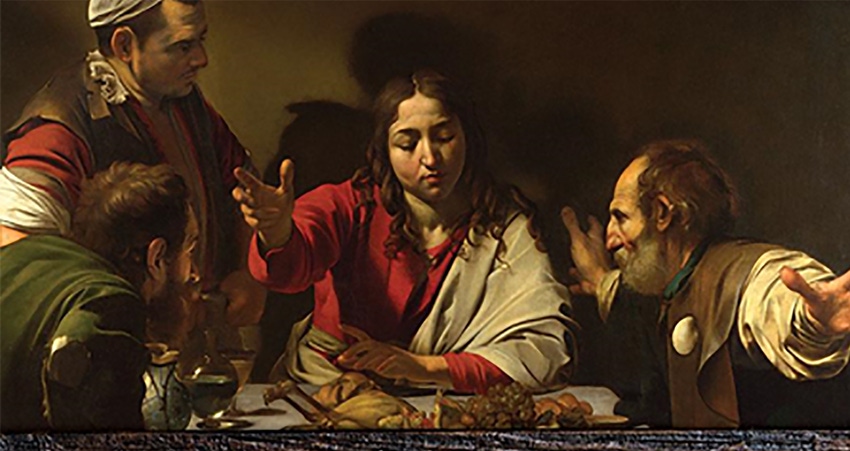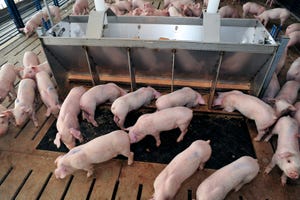Eating meat should not be question of conscience
“What Would Jesus Really Eat? The Biblical Case for Eating Meat,” tackles the challenges to Christian meat-eating and features Minnesota pork producer Randy Spronk.

I’ve generally tried to follow the etiquette rule to “never discuss politics or religion in polite company,” but that can be hard to do, especially when organized political groups spill money and resources into trying to convince Christians that livestock production and eating meat are morally wrong.
“The debate about whether you can eat certain foods and what food you can and should not eat is as old as the Christian text itself, so it’s not a new topic,” says Wes Jamison, associate professor of Public Relations at Palm Beach Atlantic University. “What makes it new this time is the animal rights movement has placed a focus upon this topic as a way to undermine the legitimacy of animal agriculture in the United States.”
Jamison, who is also an ordained Southern Baptist minister, along with Paul Copan, a Christian theologian and author, and professor at Palm Beach Atlantic as well, recently co-edited a book that tackles the challenges to Christian meat-eating, human exceptionalism and humanity’s dominion over other living creatures. The book, “What Would Jesus Really Eat? The Biblical Case for Eating Meat,” examines what the Bible has to say about using and eating animals from several different perspectives. The book also features our very own Minnesota pork producer and former president of the National Pork Producers Council, Randy Spronk.
“In this particular iteration, you have something of a sophisticated political group that is pouring an awful lot of money into creating resources, Sunday school lessons, talking points to try to influence people that eating animals, whether it be from an organic farm or a high production, high-efficiency farm, is somehow morally wrong,” Jamison says. “We wrote the book in order to refute that, using the scriptures and church history itself to say this isn’t wrong. Christians may eat whatever they want.”
So what denominations are falling prey to these type of actions by animal rights activists? Jamison says it isn’t necessarily the more liberal Christians.
“I would call them socially progressive and sort of that old-line Protestant denominations — Methodist, Episcopalian — who are receptive to arguments that somehow resonate within the social welfare movement itself,” Jamison says. “What that means is the social Gospel. By doing good, you do God’s will and by doing good for the most, you do God’s will and more.”
Jamison says the book is written at a very approachable level for people who do attend church and/or are Christians and want to know the theological, biblical reason for what they do.
“If someone comes up to you and says, you should feel guilty about eating a veal calf, or you should feel guilty about eating meat from a large farm, this gives them a ready resource and a tool from church history and in particular the Bible itself to defend themselves,” Jamison says. “It’s a resource for those who attend church or might actually be Christians to defend themselves and also to get the word out. You don’t have to be ashamed. In fact, you can rejoice.”
Secondly, Jamison says the book can give insight to those who may not be faith-based or attend church.
“Even for the opponents of animal agriculture, it’s a resource to show here’s what the Bible actually says for the New Testament and Old Testament and here’s what church history says,” Jamison says. “It’s generally an available resource, first for those who want to defend what they believe about eating meat, and also those who might want to understand the perspective of dominion and stewardship and other Christian principles.”
If he had to condense the book down to one common theme, Jamison says it’s to convey to Christians that eating meat should not be a question of conscience.
“The Christian has freedom to eat meat without it being a question of conscience. In fact, not only can they do it, they are blessed when they do it and the source of the meat is not really an issue in the New Testament,” Jamison says. “We are allowed to eat meat from any type of animals. We are allowed to do so with joy. We are allowed to do so with freedom.”
If anyone comes along telling you that you ought not to, Jamison advises looking up New Testament book 1 Timothy 4: 1-5, which gives an explicit warning to avoid people who tell you cannot eat animals, you can’t eat other things in God’s creation.
“It says that all things created by God can be eaten, can be enjoyed as long as they’re sanctified,” Jamison says. “In other words, set aside, made holy through the word of God and prayer. So, there’s lots of scriptures for the believer to use to defend themselves and rejoice in doing so.”
Copies of “What Would Jesus Really Eat? The Biblical Case for Eating Meat” can be purchased from the Animal Agriculture Alliance for $15 plus shipping and handling. Bulk order discounts are available for quantities from 25-99 ($13 per copy plus shipping and handling) and 100-plus ($10 per copy plus shipping and handling).
About the Author(s)
You May Also Like





